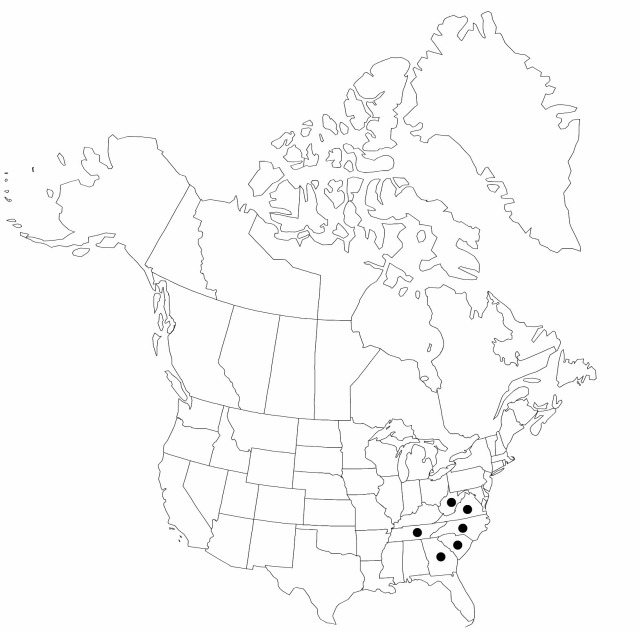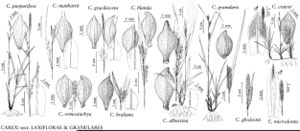Difference between revisions of "Carex manhartii"
Castanea 50: 15, fig. 1. 1985.
FNA>Volume Importer |
imported>Volume Importer |
||
| (6 intermediate revisions by 2 users not shown) | |||
| Line 6: | Line 6: | ||
|place=50: 15, fig. 1. 1985 | |place=50: 15, fig. 1. 1985 | ||
|year=1985 | |year=1985 | ||
| + | }} | ||
| + | |special_status={{Treatment/ID/Special_status | ||
| + | |code=F | ||
| + | |label=Illustrated | ||
| + | }}{{Treatment/ID/Special_status | ||
| + | |code=E | ||
| + | |label=Endemic | ||
}} | }} | ||
|basionyms= | |basionyms= | ||
| Line 31: | Line 38: | ||
-->{{#Taxon: | -->{{#Taxon: | ||
name=Carex manhartii | name=Carex manhartii | ||
| − | |||
|authority=Bryson | |authority=Bryson | ||
|rank=species | |rank=species | ||
| Line 45: | Line 51: | ||
|publication title=Castanea | |publication title=Castanea | ||
|publication year=1985 | |publication year=1985 | ||
| − | |special status= | + | |special status=Illustrated;Endemic |
| − | |source xml=https:// | + | |source xml=https://bitbucket.org/aafc-mbb/fna-data-curation/src/2e0870ddd59836b60bcf96646a41e87ea5a5943a/coarse_grained_fna_xml/V23/V23_802.xml |
|genus=Carex | |genus=Carex | ||
|section=Carex sect. Laxiflorae | |section=Carex sect. Laxiflorae | ||
Latest revision as of 21:43, 5 November 2020
Culms densely tufted, erect, ascending, or, rarely, decumbent, 21–39 cm × 0.7–1 mm. Leaves: basal sheaths reddish purple, lustrous; sheaths 5–40 mm; blades lateral, erect or ascending, green, midrib well developed, especially abaxially, 2 lateral veins developed adaxially, flat to slightly corrugated, 11–29 cm × 0.7–5.2 mm, dead leaves lateral to new clumps, overwintered leaves smooth abaxially. Inflorescences: peduncles of lateral spikes 3–22 mm; of terminal spike (0.9–)1.2–3.2(–5.3) cm. Bracts 0.45–3.75 cm × 1.9–4.8 mm, bract blade of distal lateral spikes linear, narrower than spikes, not concealing them (viewed from abaxial surface), widest bract blade of distalmost lateral spike 0.5–3.4 mm wide. Spikes (3–)4(–5) per culm; lateral spikes 8–35 × 2.8–4 mm; terminal spike linear, 8–21 × 0.9–2.7 mm, usually exceeded by bract blade of distalmost lateral spike, sometimes sharing sheath with distalmost pistillate spike. Pistillate scales 3.6–3.8 × 1.4–1.6 mm, apex acute to aristate or, occasionally, awned, awn to 0.6 mm, serrulate apically. Staminate scales 3.8–4.8 × 0.8–1.2 mm, margins hyaline (rarely slightly purplish tinged). Anthers 2–2.2 mm. Perigynia 2–7 per spike, conspicuously (22–)25–32-veined, oblong-elliptic, 3.4–4.2 × 1.7–2 mm; beak slightly curved, 0.8–1.3 mm. Achenes ovoid, 1.8–2.2 × 1.4–1.8 mm. 2n = 28.
Phenology: Fruiting spring–early summer.
Habitat: Moist, deciduous or mixed deciduous-evergreen forests
Elevation: 600–1200 m
Distribution

Ga., N.C., S.C., Tenn., Va., W.Va.
Discussion
Selected References
None.
